Community-Housing with Two Overseas Educators | Culturally Immersive & Meaningful Daily Activities
Antigua, Guatemala, is a captivating blend of colonial charm and vibrant culture nestled among the volcanoes of Central America. Known for its cobblestone streets, pastel-hued buildings, and well-preserved Spanish architecture, Antigua offers a picturesque backdrop for cultural immersion and exploration. The city's rich history, evident in its churches and ruins, contrasts beautifully with its modern-day vibrancy seen in bustling markets, art galleries, and lively festivals.
Overview: This program is designed for students interested in living and exploring with a cohort of peers during a place-based semester in Guatemala. Up to 13 students will have the opportunity to immerse in local culture, history, activities, causes, and the environment of Antigua for 8-weeks. Hands-on experiences, Spanish study, field trips, guest lectures, and volunteering will help students develop a deep understanding for the region and its significance.
Workshops & Skills
- Spanish language and culture
- Guatemalan history
- Independent living skills (cooking, daily living, etc.)
- Networking & community engagement
- Arts and culture, cooking
- Outdoor adventure (Volcan Acatenango/Fuego)
- Social entrepreneurship
- Independent travel (safety, planning, meeting new people)
- Intro to fiscal responsibility / budgeting
- Intro to yoga, meditation, and mindfulness practices
- Intro to green building
- Student Directed Travel - organizing transport & housing, researching, budgeting, etc.
- Self-awareness - journaling, sharing in group meetings, mentorship by OEs
- Cultural celebrations
- Sustainable building (long way home + Chad)
- Spanish Language (classes, homestays)
- Leadership - student directed travel + LOW
- Managing a small organization/non-profit
- Social development / group travel
- Regenerative agriculture
- Identity/Privilege CDLs
- Indigenous history (visit archaeological sites)
Program Details
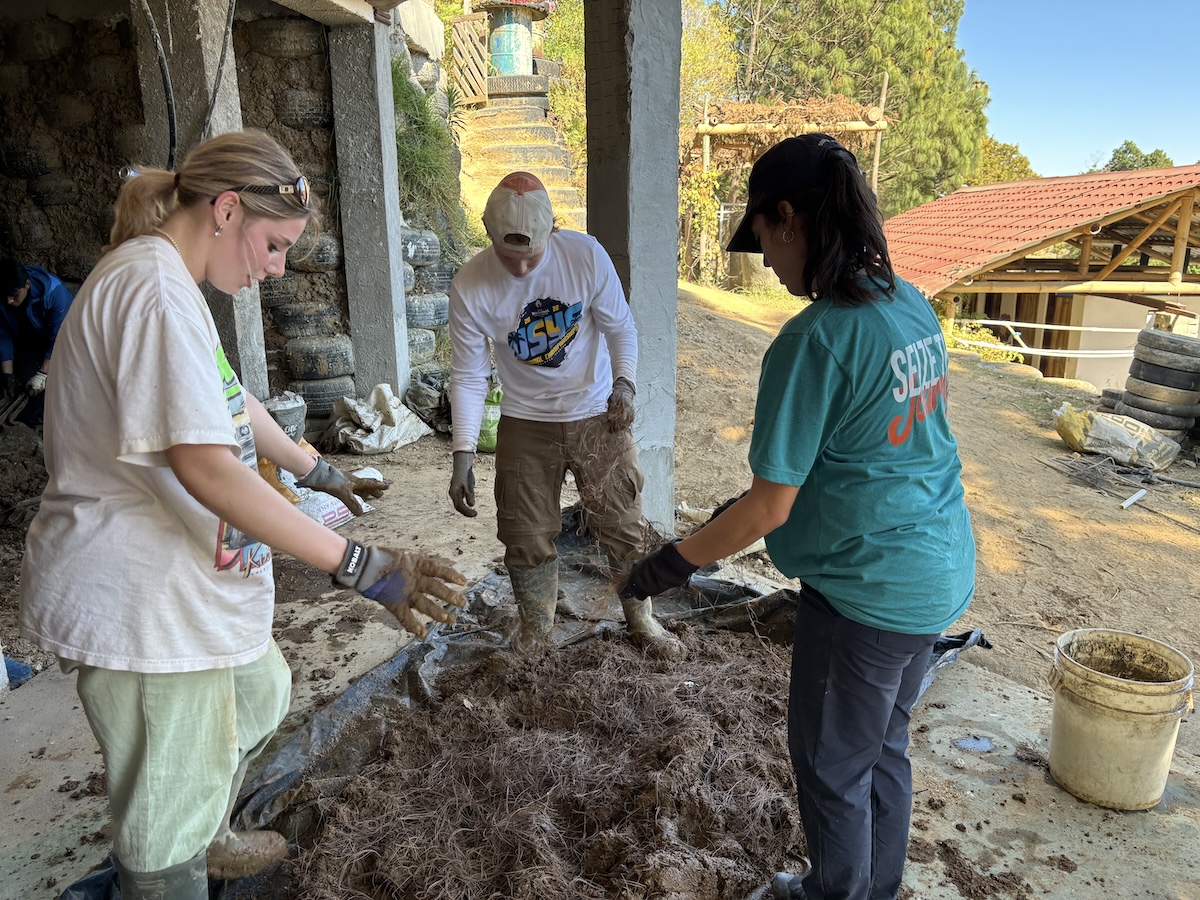
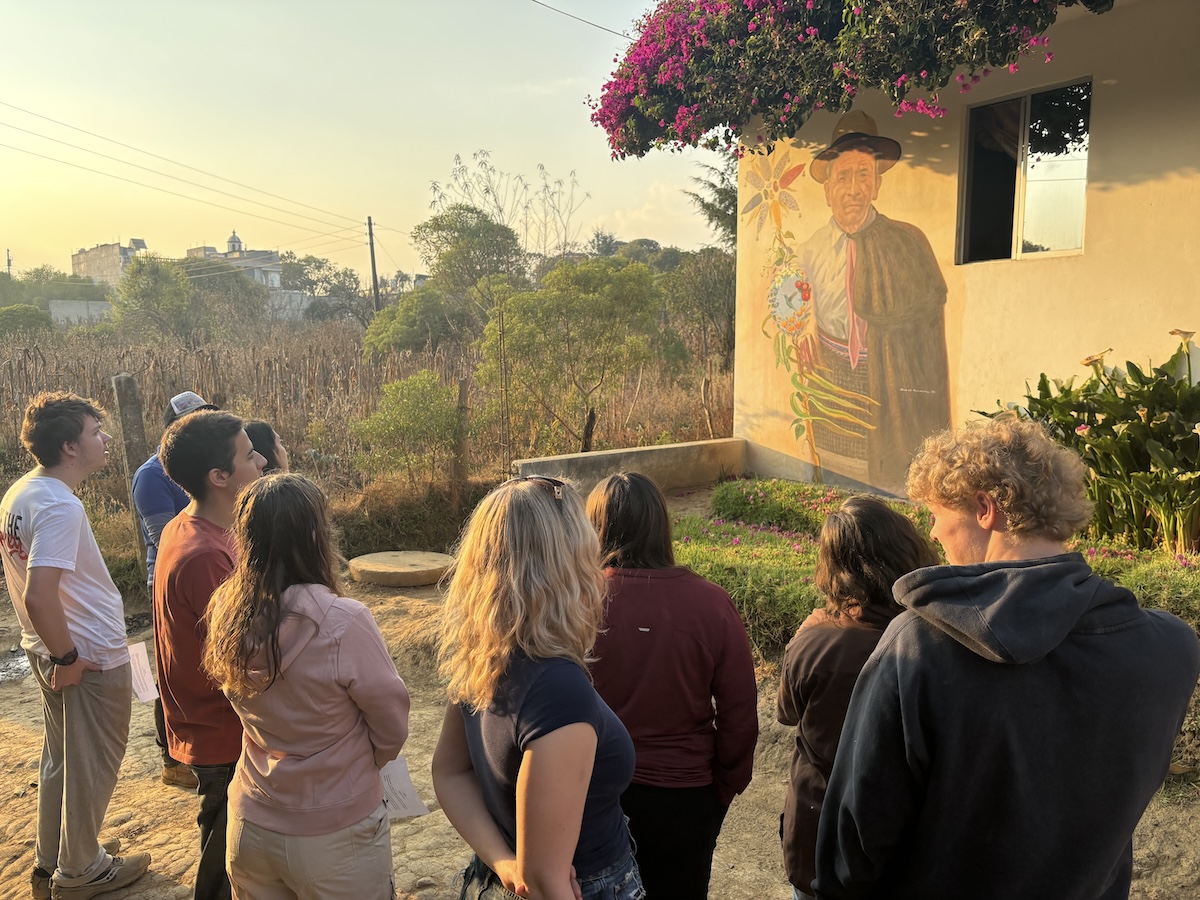
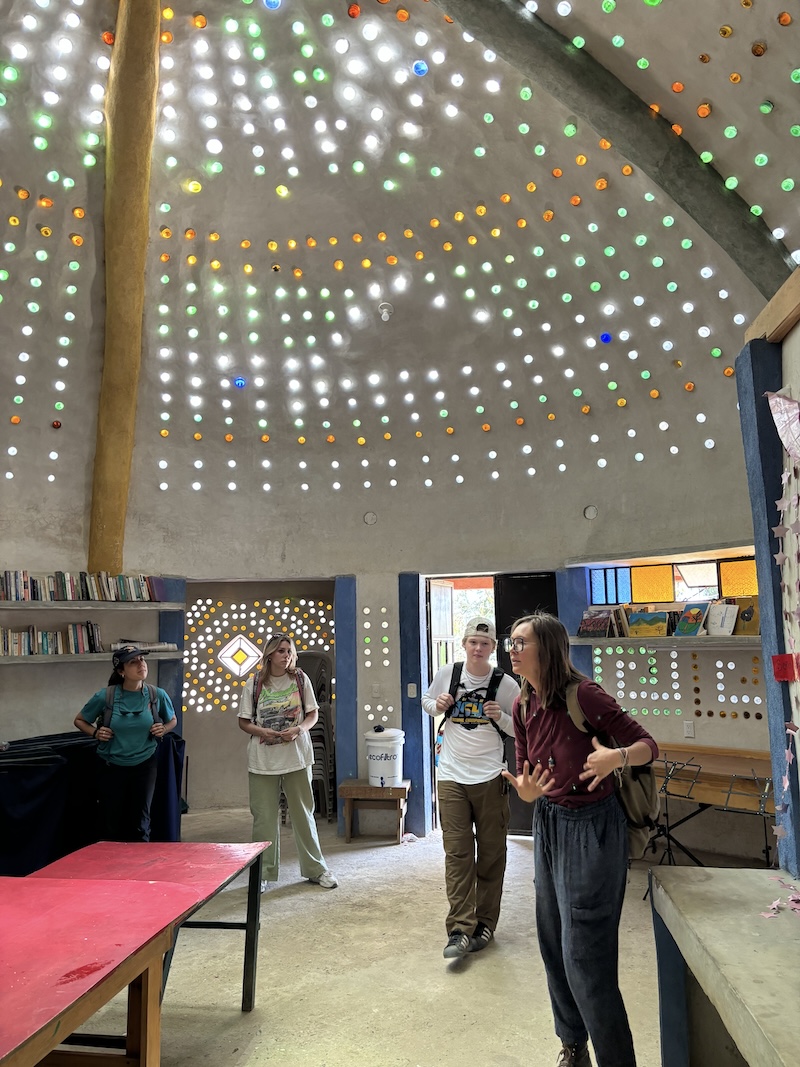
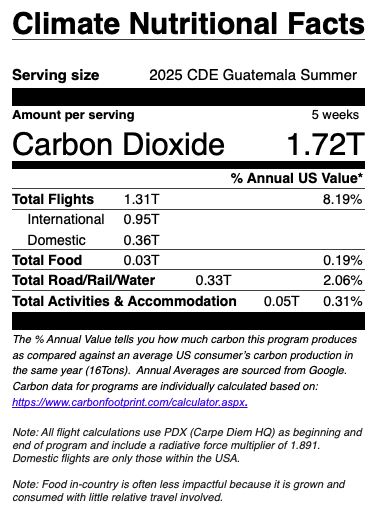
Length
Fall 2025: 56 days (8 weeks)
Summer 2026: 35 days (5 weeks)
2025 Program Dates *
Summer 2025: Closed
Fall 2025: September 25 - November 20th (8 weeks)
2026 Program Dates *
Spring 2026: February 25th - April 22 (8 weeks)
Summer 2026: June 24 - July 29 (5 weeks)
Fall 2026: September 24 - November 19th (8 weeks)
* Dates may fluctuate depending on flight times and availability.
Group Size
2 Overseas Educators and up to 13 students.
Eligibility
Our typical student is between 17-22, though we sometimes work with students slightly outside that range depending on circumstances.
College Credit & Scholarships
Learn more about: College Credit & Scholarships
Language Requirements
None
Cost
Fall 2025: $12,900 (8 weeks)
Spring & Fall 2026: $12,900 (8 weeks)
Summer 2026: $9,900 (5 weeks)
Program tuition includes all food, accommodations, scheduled program activities, and international travel insurance for the duration of the program. International airfare and spending money are extra. International airfare estimated at $1,200 - $1,500.
Climate Nutritional Facts
Being aware of our footprint is a great first step. Learning what to do about it, is ahead. To start mitigating the extra carbon of your trip, students are encouraged to consider eating a low-meat diet, purchasing locally-made green products, using public transit where available, and talking to their local community and politicians about climate change.
During this program students will "inset" much of their carbon through volunteer projects. Students will eat and drink from typically immediately local sources, staying in housing that supports local entrepreneurs and communities, and learning about ways to better the environment that can be taken home.
Where We Travel
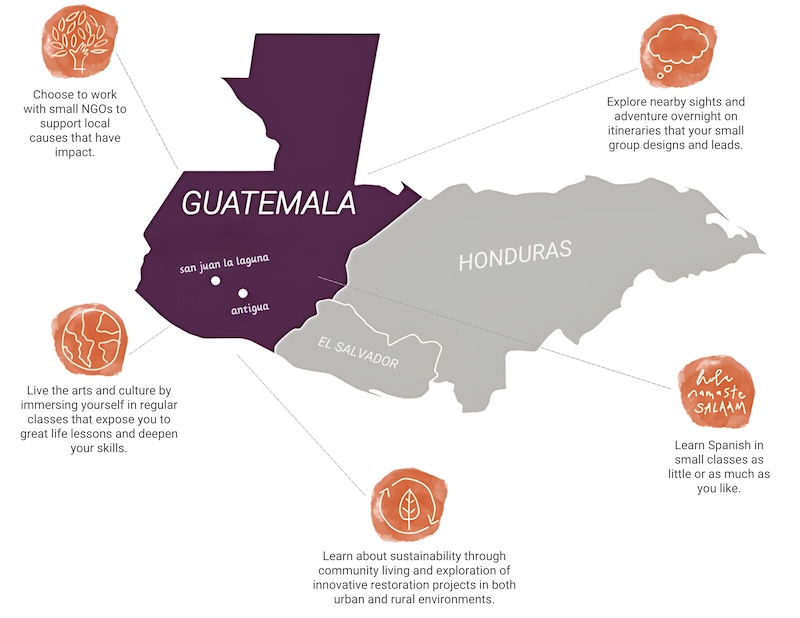
Home Base: Antigua, Guatemala
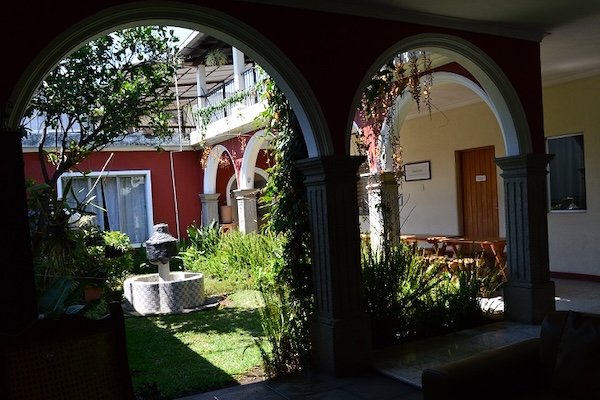
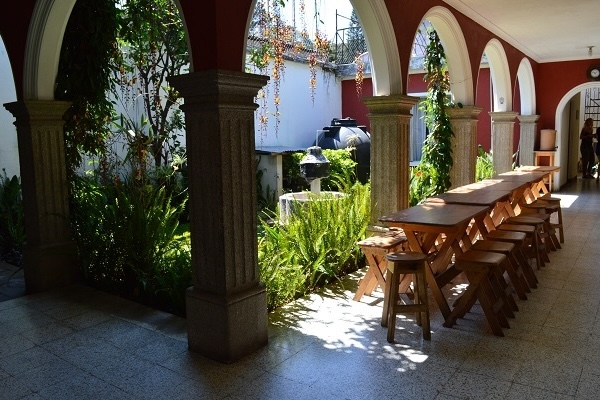
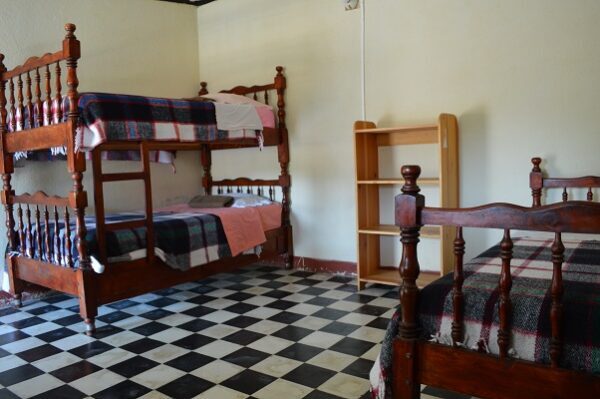
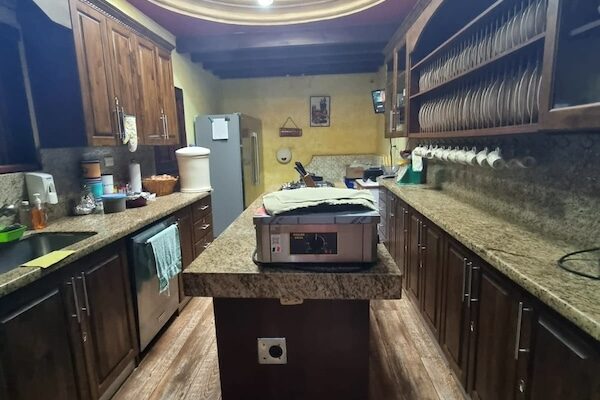
Guatemala, home to the picturesque colonial city of Antigua and the serene beauty of Lake Atitlán, beckons students to explore its rich cultural heritage and natural wonders. Antigua's cobblestone streets lined with colorful colonial buildings offer a glimpse into the country's history, while nearby volcanoes provide adventurous hikes with breathtaking views. At Lake Atitlán, surrounded by towering volcanoes and indigenous villages, students engage with Mayan traditions and environmental sustainability efforts.
The heart of the program will be in Antigua, however, where students will participate in community projects, learning firsthand about local challenges and resilience. Spanish immersion becomes an everyday experience, enhancing communication skills and cultural understanding in this diverse and dynamic setting. Guatemala's landscapes and communities inspire personal growth and a deeper appreciation for global interconnectedness, making it an unforgettable classroom for exploring both the past and the future of Central America.
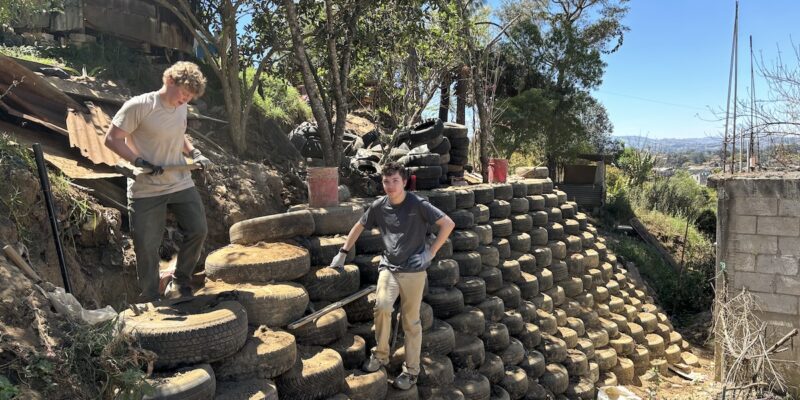
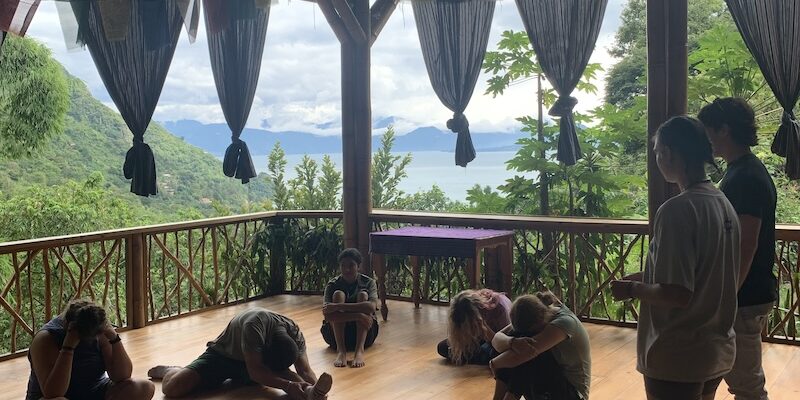
Orientation: In the 3-day orientation, students study risk management and are tasked with setting goals, establishing community rules, and reviewing their schedule and expectations of the program. Group discussions will help students get to know each other and build relationships based on trust and respect.
Housing: Students will live in centralized housing that Carpe Diem rents specifically for this cohort: rooming as pairs or in dorms for the duration of the semester. Each student will have access to a kitchen to cook, (or learn how to cook) as well as internet access and laundry facilities.
Experimenting with Meaningful Living: Students will have opportunities to opt-in to activities such as meditation, yoga, exploration in nature, journaling and reflection, gratitude practices, creative expression and digital detoxes to help them cultivate a more meaningful connection to themselves, their peers, and the world around them.
Self-Paced Volunteer Opportunities: Students will start their quest for meaningful volunteering prior to departure, working with their Program Director to explore volunteer options that will be available to them during the program. Once on the ground, Students will work with their Overseas Educator and local contacts to commit to at least two main activities and thus reap the benefits of commitment. Some activities might include:
- Language school
- Art studies (eg., music, painting, weaving, photography, etc.)
- Mayan studies
- Mindfulness & path-setting (Yoga, meditation, journaling, etc.)
- Cooking, coffee, cacao
- Research & interviews
- Focused volunteer projects (eg., medical, environmental, social justice, civil rights, indigenous rights, nutrition, education, etc.)
Participate In a Supervised and Supported Learning Environment: Our Overseas Educators will work with the group to create a respectful and inclusive community focused on belonging and curiosity. Our expert staff will share tools and strategies to foster open communication, community building, active listening, and inclusivity to ensure that all students feel safe expressing their thoughts and ideas.
Excursions: Throughout the program, students will participate in a series of excursions to key locations in the region. These could include historical sites, natural landmarks, cultural institutions, local businesses, and non-governmental organizations. These experiences will be supplemented with guided tours, workshops, and opportunities to connect with local experts.
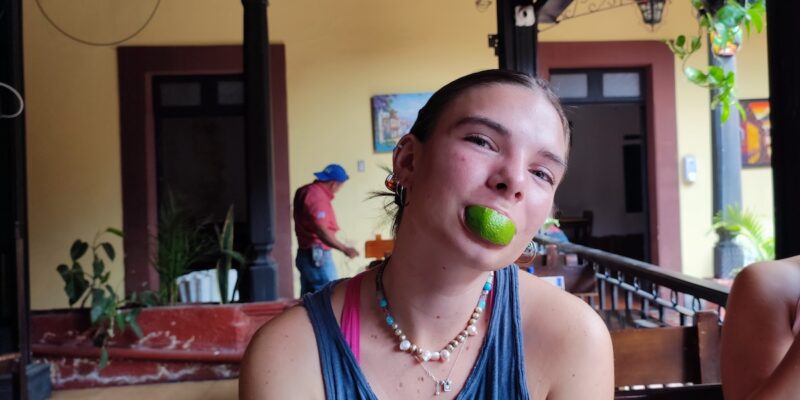
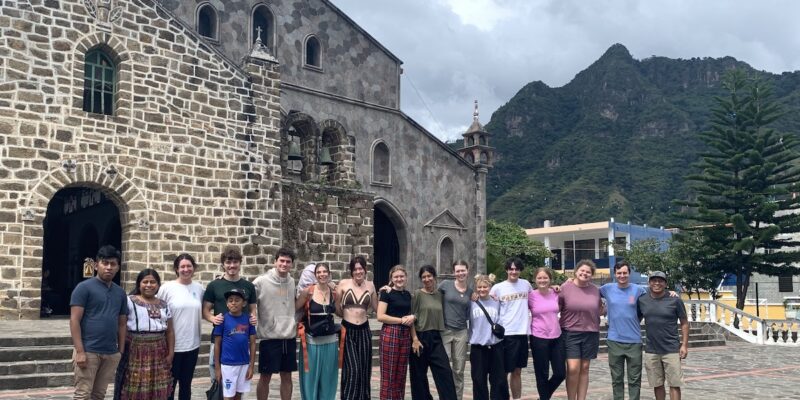
Weekly Reflection and Integration: Throughout the program, students will engage in guided reflection activities to process their experiences and learning. They will be encouraged to connect their experiences to broader themes such as environmental stewardship, social justice, and cultural diversity. There will typically be three weekly activities where students are expected to participate, aimed at connection, reflection, steering into challenges, maximizing their time in Guatemala, and future planning.
Present and Celebrate Achievements: The program will conclude with a culminating activity/presentation/performance where students showcase their projects and share their insights with the community.
Student Directed Travel: Most students will typically launch some independent travel after their place-based Carpe Diem program, but because it’s always best to finish on a high point, students will research, budget, design, and lead a culminating trip that the Overseas Educators will support and coach. Students will apply their cultural and travel know-how into their own experience, learning as they go, but with the support of their Overseas Educators for any larger issues.
Sample Program Schedule:
- 8-9am Students and Overseas Educators will cook breakfast together, eat, and clean up the communal kitchen before beginning the day
- 9am-12pm - Program activities. Students will have an opportunity to engage in program activities that they have selected based on their interests and gap year goals. Will you participate in language classes, learn the art of print-making with a local artist, or perhaps interview locals for your research project?
- 12-1pm - Lunch. Most days students will be given a per diem (a daily allowance) so they can eat lunch at a local cafe or restaurant of their choosing. Per diems are intended to give students more choice in their meals while also teaching budgeting and financial management.
- 1-4pm - Program activities. Some days this will include full group activities facilitated by the Overseas Educators, and other days students will have time to continue participating in the activities they have selected according to their interests and goals.
- 4-6pm - Dinner time! Most nights, Students and Overseas Educators will grocery shop, meal plan, and cook dinners together throughout the program.
- 6-9pm - Community activities or a group meeting. Examples of activities that the Overseas Educators will coordinate include: volunteering, language school, shopping for food, laundry, mindfulness activities such as meditation or yoga, meaningful living opportunities, Carpe Diem Lessons, lessons from outside experts, attending a local festival or event, watching a local soccer game, journaling and reflection, etc
Two Overnight Excursions:
Two times throughout the program there will be an overnight excursion led and facilitated by the Overseas Educators. These might include: an overnight trek, 48-hours of Student Directed Travel, visit to Lake Atitlan NGOs and relaxing on the lake, etc.
Questions We'll Explore:
- What is the cultural significance of Antigua Guatemala?
- How does environmental sustainability impact Lake Atitlán?
- What role do indigenous communities play in contemporary Guatemala?
- How does Spanish language immersion enhance cross-cultural understanding?
- What are the social justice issues affecting Guatemala today?
- What can ancient Mayan traditions teach us about sustainability and resilience?
- How do global and local perspectives intersect in Guatemala's economy?
- What are the historical roots and contemporary expressions of Guatemala's artistic and literary traditions?
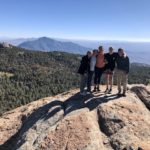
“Carpe Diem proved to be everything we had hoped, and judging by the words of our son, was a phenomenal experience. From new friends bonding in the jungle, learning to truly speak Spanish, working in the orphanage, coffee or banana farm, to exploring ancient ruins, the value of mixing effort, new cultures, and education can’t be overstated.”
-Parent,
Central America Student

ANTIGUA PROGRAM FAQ
Who is this program a good fit for?
Students who are looking for a more independent experience, supported by community. This is a good program to do online classes, volunteer and take classes that explore personal and practical futures while fostering skills for independence and accountability. The days will be lightly structured with mandatory meetings twice per week, and requiring at least two productive activities per day (ie, volunteering, language school, activities, cooking, etc.). Students aged 17+ are encouraged to apply.
How is this program different from the other Carpe Diem semester programs?
Most Carpe Diem programs travel every 10-days on average, exploring a region rather than a place. However, we recognize that travel is stressful, sometimes evokes feelings of uncertainty and danger, and many youth want to invest in place-based skills instead of the skill of travel. We designed this program to allow students the opportunity to ease into the adult world in a different environment. Students will learn different skills than travel, such as networking, living in community, cross-cultural skills, Spanish, budgeting, and more.
How is this different from a Latitudes placement?
This program is different from Latitudes in that it is with community and live-in Overseas Educators whose job isn’t to police you, but to educate you on life, local communities, and international studies. Latitudes is a typically independent Focused Volunteer Placement, with a local mentor but not a trained Carpe Diem Overseas Educator. Our Overseas Educators bring a host of life experience, travel and regional experience, risk management, wilderness medical certifications, and are supported by our HQ office in a way that students are more ‘on their own’ on a second-semester Latitudes FVP.
What are the rules for this more independent, place-based program?
The program rules are the same as for other programs, however, the “culturally significant alcohol” exception may have some more flexibility under the supervision of your Overseas Educators.
